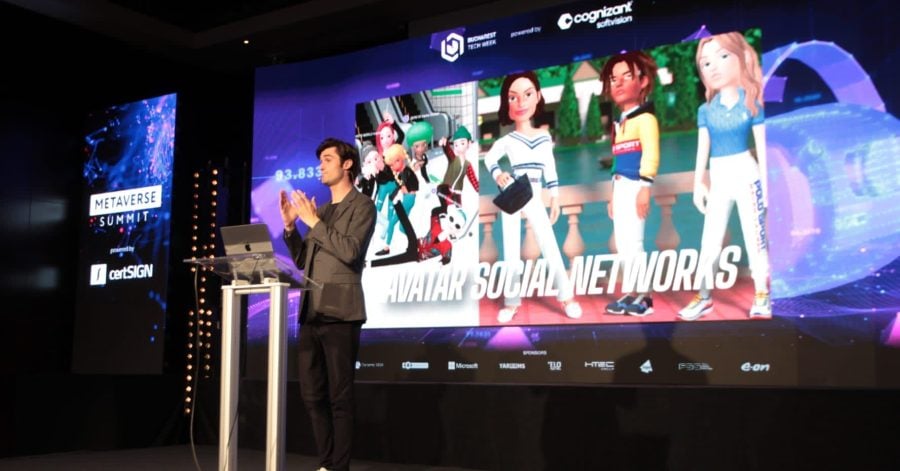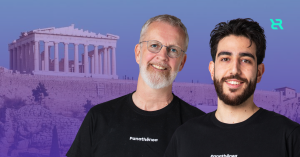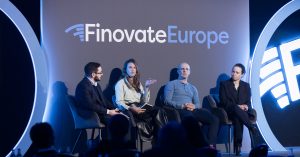“Raise your hand if you are under 25,” says AI expert Massimo Buonomo. On the 15th of June, he presented the future of Metaverse and its risks at the Bucharest Tech Week summit. The majority of the crowd was well above that age, hence their interest in learning about this hyped topic.
He, among other keynote speakers, unveiled different perspectives about the next frontier of the tech world – the Metaverse. While some focused on its valuable contribution to the educational, health, and sustainability sectors, others noted the importance of making it decentralized. But they all raised questions about its risks if left in the hands of only a few of the digital lords.
#1 The Metaverse must be decentralized
Massimo Buonomo specialized in ethics in autonomous and artificial intelligence applications at the International Electrotechnical Commission, or IEC, in Geneva. He has a background in international finance and highlighted that the core of Web3 is decentralization, where the power is distributed to different players.
Massimo was clear that the Metaverse isn’t for everybody. What’s more, most of us aren’t even an interesting target for the companies developing in this field. Gen Zs and Alphas are, which makes it both intriguing and dangerous.
This made me wonder: “What age should you be to join the Metaverse? When are you conscious enough to distinguish between the omniverse, between what is real and what is digital? When are you prepared to understand that even if you build a forever-living existence in the Metaverse, your life on Earth is noteworthy due to its ‘limited existence’ label?”
The AI expert was adamant about the risks of the new universe that is being built, code by code, as you are reading this. We cannot stop it, so we better understand it. Hacking, regulations, the confusion created by deep fakes, and harassment, not to mention the mental implications of developing a parallel life, came up in his speech.
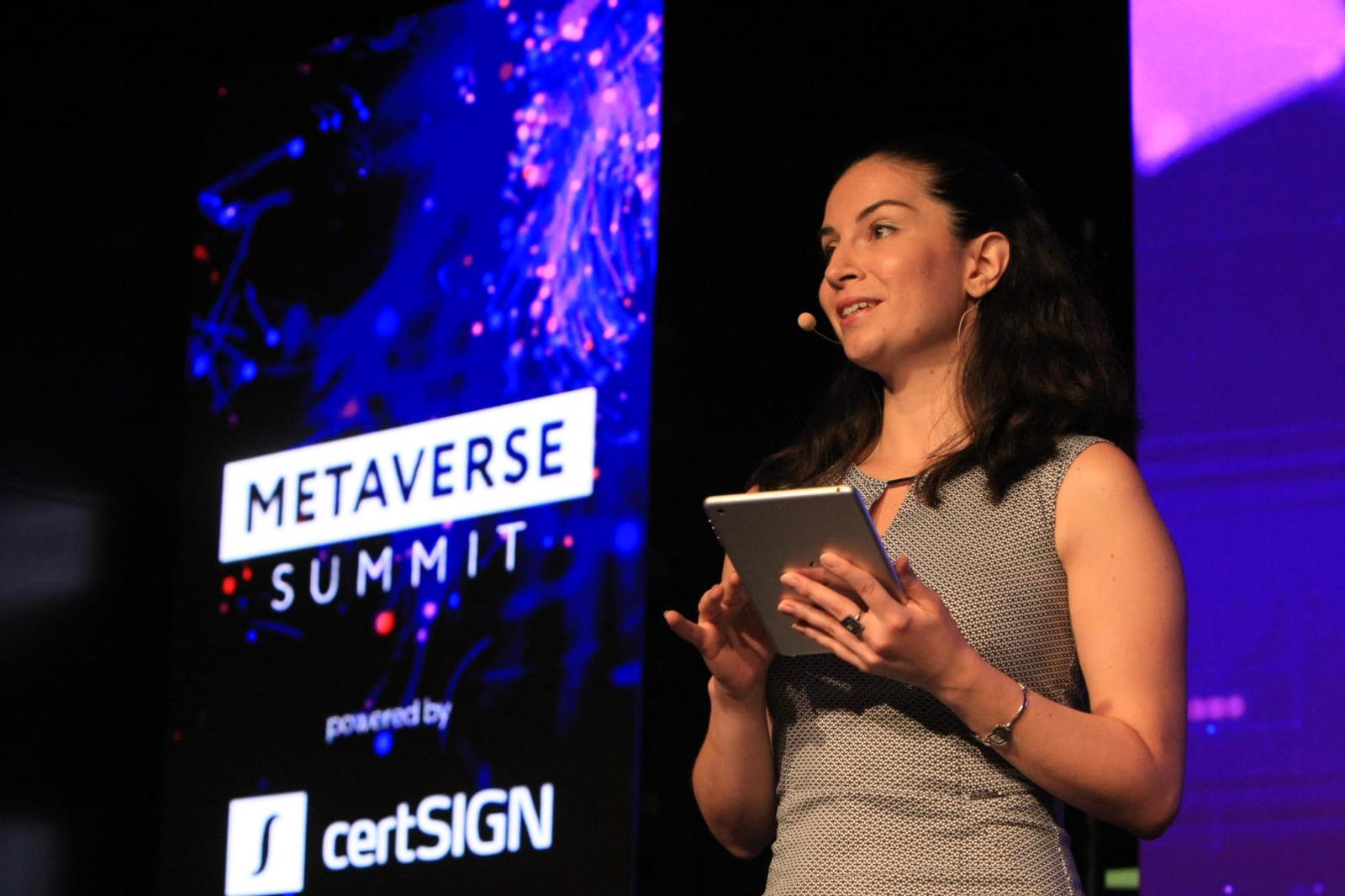
#2 Metaverse is limited only by your imagination
I was listening to all of this in awe. Like watching a Sci-Fi movie, only that it was real. “But what is real?”, another speaker, Dimitar Kralev, VFX Producer at The Fabricant, a digital fashion house, based in Amsterdam, asked rhetorically.
Dimitar pointed out that “the limit is your imagination” when it comes to the 3D world. He supports the Metaverse idea due to its advantages, like sustainability, and the unlimited possibilities of playing with the design of clothes, for example.
Designers, cloud data storage providers, physical gadgets, and crypto, are all part of the Metaverse. Amongst the risks, this universe is creating a new series of revenue tools, jobs, experiences, and memories.
If you are afraid to fly or speak in public, you can develop a new set of skills in the Metaverse, and bring it to the “real world”. In the Metaverse, you can create “digital twins” of airplanes, cars, or factories to showcase development.
#3 Metaverse as the new media
“Data is the new oil,” said Cosmin Georgescu and Vladimir Ester, CEO and CTO at Cluster Power, a technology campus with high-performance computing infrastructure, or HPC, based in Bucharest, Romania.
Lorenzo Cappannari, CEO of AnotherReality, a software company helping brands turn digital, shared that the Metaverse is an alternative media for new targets. The digital realm comes with a virtual economy and brands should start thinking of “phygital products” because these will be the next market disruptors.
He was the one who researched a series of definitions of the Metaverse by different professionals, from tech startup entrepreneurs, like Arthur Sychov, founder of Somnium Space, a VR world, or Neal Stephenson, who first coined the term in the book “Snow Crash”. He presented the proto-Metaverse as a 3D social medium, at the crossroads of video games and social media.
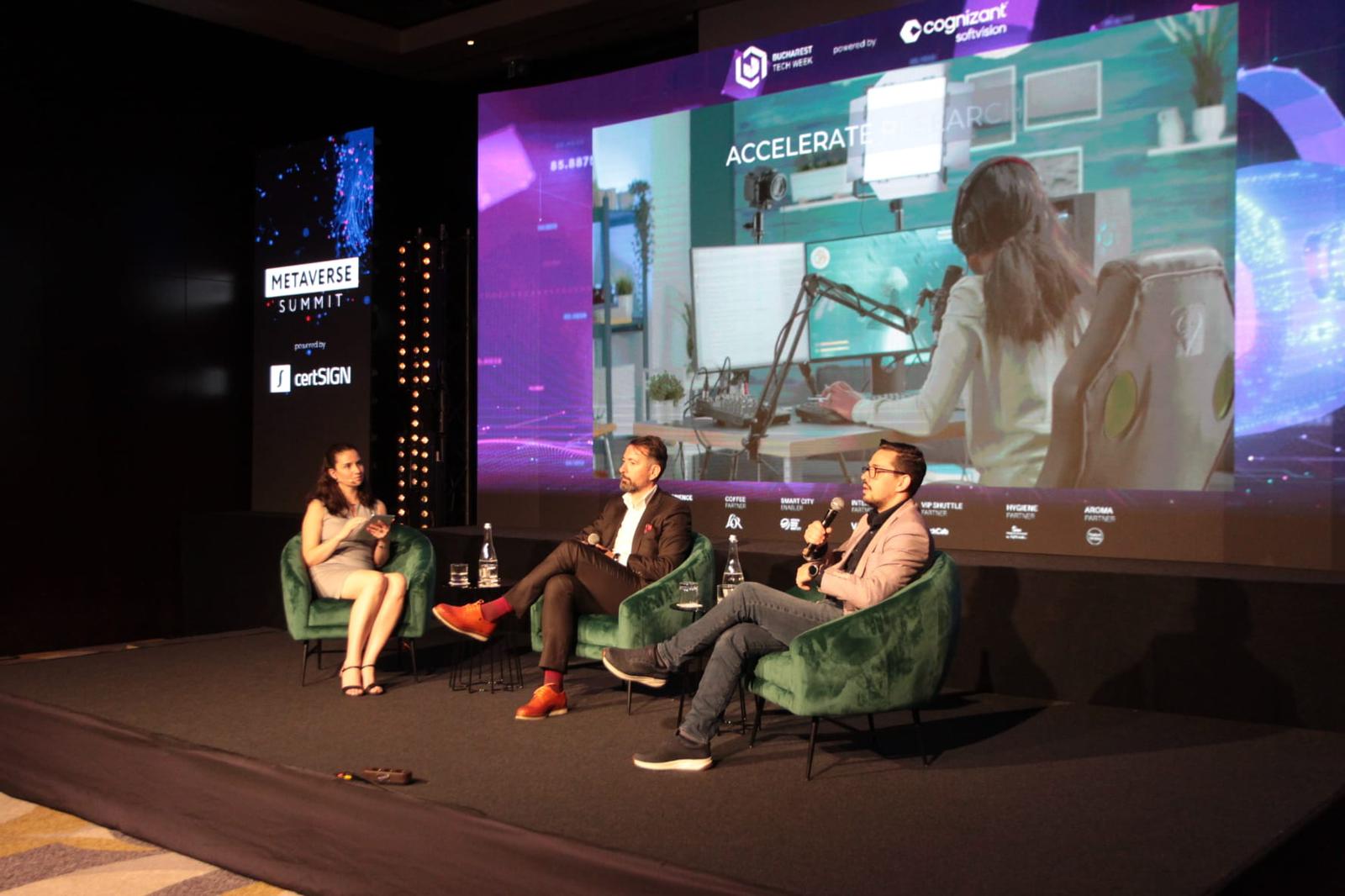
#4 Metaverse should be persistent and spacial
Arthur Sychov also made an appearance at the summit in a Zoom call from the Metaverse. Francesco Vincenti, a business developer at Somnium Space, made it possible for Arthur to show us the digital world, his assets, and explain his thesis: the Metaverse should strive to be “persistent, spacial, and decentralized”.
This means that the avatar in the Metaverse should be an extension of human life, that the realm can present a replica of Earth, and it should be owned by the many, not just one. Decentralization was on everybody’s speech in one way or another, as Facebook’s Meta was in their thoughts, most probably.
Emma Ridderstad, CEO and co-founder of Warpin, a global immersive technology partner, also supported the idea that the Metaverse shouldn’t be built with a homogeneous group. She believes that this universe can be tapped primarily for educational and medical purposes.
But then came Christopher Travers, co-founder of Offbeat, an online media creator for the digital generation. The Gen Z entrepreneur discussed pseudonymity, where users can communicate anonymously in the Metaverse through avatars. But also virtual influencers, which are a mix of realities – an avatar coordinated by different people, one that lends the voice, others that develop the brand online, doing visuals and writing social media posts.
“But shouldn’t Metaverse be an extension of the real human? If it’s a mix of realities, what is the difference between virtual influencers or VTubers, and animated characters? Isn’t this dangerous? What would you do in the Metaverse that you wouldn’t dare in the real world? Is meeting and cheating in the Metaverse real? Can you change jobs, a lawyer by day, OnlyFans, or Centerfold creator by night?” I mused on, my brain spiraling during their speeches.
The Metaverse immersion
Avinash Changa, a founder of WeMakeVR, has been creating VR experiences for almost a decade now. He is a VR pioneer who wanted to be an astronaut as a child. This made him study applied sciences and develop a new way to create memories. His Metaverse thesis is “involve me and I will learn”.
Everybody in the room appreciated this thesis, as we all got an opportunity to immerse ourselves in the idea of the Metaverse. As Adrian Floarea, CEO of certSIGN, a software company specialized in security, made a ghostly appearance as a hologram, we began to understand the implications of this new technology, with a focus on creating new revenue streams.
The Metaverse can be many different things for the educational systems, for the medical ones, even for the fashion world, and sustainability – who wouldn’t want to invest in a garment that will change its colors based on moods?
It can also represent distinct things for different people. It can be a playground for the young. It can come with exciting opportunities for the more mature users that maybe cannot walk. And even a way to live forever for older generations.
But it also comes with many risks. Like Lord of the Rings taught us, “one ring to rule them all” is a dangerous gadget, and so is the Metaverse. Security comes with variety, and this is also one way to keep the universe growing long-term and not be a seasonal fad of the few “rich and powerful” players.

